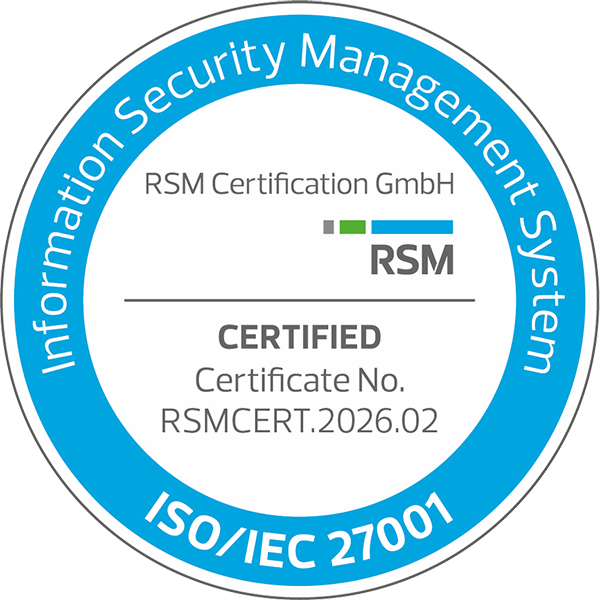BLOG
7 Reasons Why Your Company Benefits from Manager Self-Service
Discover how manager self-service solutions can transform your company and make your employees’ daily work easier at the same time! We explain why the move to digital self-management is the key to greater efficiency and satisfaction!
In today’s digital work environment, self-service solutions like employee portals are becoming increasingly important. A particularly important tool for managers is the Manager Self Service (MSS) portal. This article explains what an MSS portal is and how companies can benefit from it.
What is a Manager Self Service (MSS) portal?
A manager self-service portal (MSS portal) is an HR software solution that enables managers to handle various administrative and operational tasks independently, regardless of time and location. MSS portals can be browser-based, mobile applications or native apps. Their usability across many device classes is important. These self-service portals for managers usually offer functions such as
- Employee administration: access to employee data, approval of leave requests, management of working hours and overtime
- Reporting: create and access reports and analytics on team performance, productivity and other key metrics
- Staff development: manage training, performance appraisals and career development
- Financial management: monitor budgets, approve expenses and manage billing
An MSS portal helps managers work more efficiently by providing them with direct access to important information and tools without the need for support from the HR department or other administrative units.
So do all companies really need a manager self-service solution? Below you will find the advantages of a self-service portal and the challenges that need to be considered before introducing an MSS portal.
Advantages of MSS portals for companies
1. Increased efficiency and time savings
MSS portals automate numerous administrative tasks that have traditionally taken up a lot of time. Managers can now, for example, directly
- Process and approve vacation requests
- Check and approve working time records
- View and update personnel files
- Carry out performance appraisals
These self-service functions significantly reduce the administrative workload. HR departments are relieved by manager self-service portals and can concentrate on strategic tasks such as talent management or employee development. Managers gain time for their core tasks such as team management and strategic planning thanks to MSS.
2. Improved data quality and transparency
MSS portals give managers direct access to up-to-date employee data. This leads to:
- Greater data accuracy, as changes are recorded immediately
- Better transparency about team structures and performance
- More informed decisions based on real-time data
- Reduced risk of errors due to manual data entry
The improved data quality through MSS also supports more accurate analysis and reporting, which in turn leads to better strategic decisions at a corporate level.
3. Flexible working
MSS platforms enable managers to complete their tasks from anywhere and at any time:
- Mobile access to important information and processes
- Faster response times for urgent requests
- Support for remote working and flexible working models
- Better work-life balance for managers
This flexibility provided by manager self-service solutions is particularly valuable at a time when companies are competing for talent and working models are becoming increasingly flexible.
4. Strengthening employee loyalty
MSS portals improve interaction between managers and their teams:
- Faster processing of employee concerns
- More direct communication and feedback opportunities
- More transparent performance appraisals and objectives
- More effective talent management and career planning
This improved interaction leads to greater employee satisfaction and strengthens loyalty to the company.
5. Cost savings
The implementation of MSS portals can lead to considerable cost savings:
- Reduction of administrative staff
- Reduction of paper and printing costs through digital processes
- Minimization of errors and associated correction costs
- Optimization of resource utilization through better planning
In the long term, these savings can be significant and increase the company’s profitability.
6. Improved compliance
MSS portals support companies in complying with legal regulations:
- Automatic updating of policies and processes
- Seamless documentation of personnel decisions
- Easier creation of compliance reports
- Improved data protection through defined access rights
This is particularly important in highly regulated industries and helps to minimize compliance risks.
7. Boosting the digital transformation
The introduction of MSS portals is driving the digital transformation in the company:
- Promoting a digital culture at management level
- Preparation for future technological developments
- Increasing general digital competence in the companyCreating a basis for further digital innovations
This strengthens the company’s competitiveness in an increasingly digitalized business world.
Implementing a successful MSS portal
To take full advantage of a manager self-service portal, companies should consider the following aspects:
1. user-friendliness: the MSS portal should be intuitive and easy to use in order to achieve a high level of acceptance among managers.
2. integration: A seamless connection of the MSS portal to existing HR systems and relevant third-party systems is crucial for a smooth workflow.
3. security: Given the sensitive nature of the data managed, a robust security concept must be implemented, including precise access controls.
4. training and support: To ensure a successful implementation, managers should be adequately trained and supported in the use of the self-service portal.
5. continuous improvement: regular feedback from users should be collected and used to further develop the system.
Manager self-service portals offer companies the opportunity to optimize their HR processes, increase efficiency and at the same time increase the satisfaction of their managers and employees. In an increasingly digitalized working world, MSS solutions are an important step towards modernizing HR management and strengthening the competitiveness of companies.

